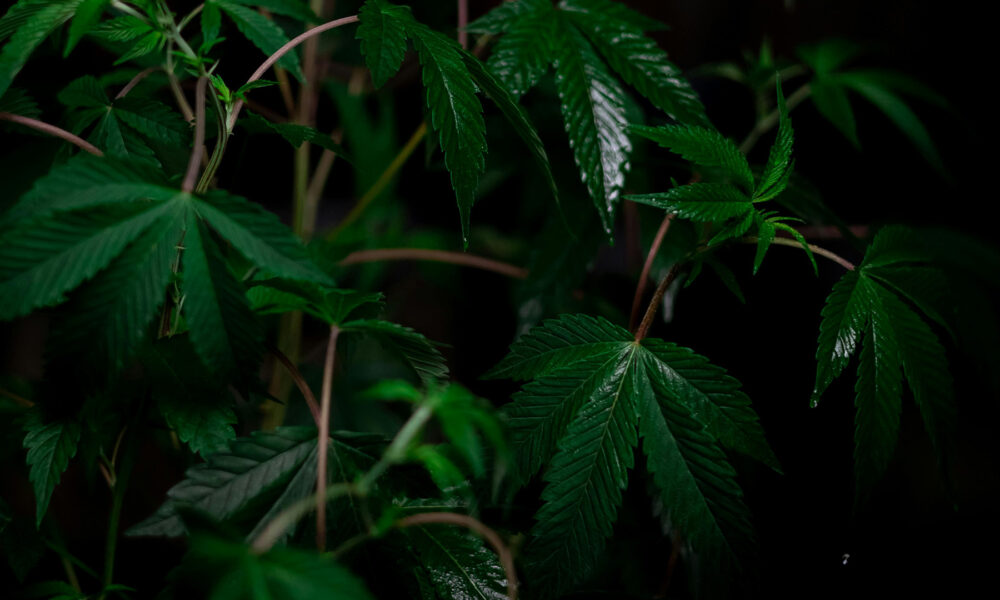In late May, lawmakers in the Czech Republic approved a historic measure that would legalize cannabis cultivation, possession, and use by adults. The measure is on track to become effective starting on January 1st, 2026.
“After more than two years of intense (and mostly voluntary) work, I am incredibly pleased to announce that we made it! Cannabis prohibition has just suffered its biggest blow in 70 years in Central Europe and the Czech Republic will now become the third country in Europe, after Germany and Malta, where adults over 21 can legally grow, harvest, dry, process, and store their own cannabis,” stated longtime Czech cannabis advocate Lukas Hurt at the time.
The approved measure will permit Czech adults to cultivate up to three plants in their private residences. It also permits adults to possess up to 100 grams of dried cannabis. Part of the measure also involves lowering punishments for cannabis activity involving larger amounts than what will be permitted for personal use. For contextual purposes, below is a breakdown of how Czechia’s legalization model compares to models in other legal jurisdictions.
Uruguay
The first country to ever adopt a national adult-use cannabis legalization measure was Uruguay in 2013. In Uruguay, adult households can cultivate up to 6 plants. Additionally, adults can possess up to ‘40 grams per month.’ As with all possession limits that are based on specific timeframes, enforcement is very difficult. However, in a direct comparison, Czechia’s model is not as good as Uruguay’s when it comes to cultivation, but is superior when it comes to personal possession.
Unfortunately, current European Union agreements do not permit member nations to implement a nationwide recreational cannabis commerce system, including in the Czech Republic. On that front, Uruguay’s model is better because adults can make legal recreational cannabis purchases through Uruguay’s pharmacies. Adults in Uruguay also have the option to join a noncommercial cultivation association, which is not an option under Czechia’s current model.
Canada
Canada became the second country to legalize cannabis for adult use at a national level in 2018, and is currently home to the most robust adult-use cannabis freedoms of all the current legalized nations. Adult households in Canada can cultivate up to four cannabis plants, although some local jurisdictions still prohibit home cultivation. The legal possession limit in Canada is set at 30 grams of dried flower, but there are also specified limits for other forms of cannabis. With that in mind, the cultivation limit in Canada is slightly better than the Czech model, but inferior on the possession side of the equation.
The commerce options for adult cannabis consumers in Canada are the best on the planet, with consumers being able to make purchases at brick-and-mortar stores as well as ordering cannabis products through the mail. As previously mentioned, no adult-use cannabis commerce is permitted under the Czech legalization model.
Malta
Malta became the third country to adopt a national legalization measure, and the first European country to do so, in 2021. While Malta does not have a regulated national sales system in place due to EU agreements, it does permit adults to join noncommercial cultivation associations from which to source their cannabis products legally. That component of Malta’s legalization model is better than what is currently being pursued in the Czech Republic.
The cultivation limit in Malta is four plants, similar to the limit in Canada, and one more plant compared to the Czech model. However, the possession limit in Malta is only half (50 grams) of the possession limit that the Czech Republic is expected to allow. It is also worth noting that in Malta, as well as in Uruguay and Canada, the legal cannabis age is set at 18 years old, compared to the expected legal age limit of 21 in Czechia. Some local jurisdictions in Canada have a legal age of 19, but the federal limit is set at 18 years old.
Luxembourg
In 2023, lawmakers in Luxembourg approved a national adult-use cannabis legalization measure. However, while the measure allows adult households to cultivate up to 4 plants in their private residences, adults can only possess up to three grams of cannabis. Certain personal cannabis activity can also still result in a fine in Luxembourg. As such, Luxembourg’s model is the most inferior out of all of the national legalization models in place right now.
Germany
In April 2024, lawmakers in Germany approved what is widely considered to be the most significant national adult-use cannabis legalization measure to-date, at least from a geopolitical perspective. Germany is the most populous country in the European Union, and an international leader when it comes to economics and industry. The significance of German legalization on the wider European and global cannabis industry was a main area of focus at the recent International Cannabis Business Conference in Berlin.
Germany’s legalization model permits adult households to cultivate up to three plants in their private residences and for adults to possess up to 50 grams in private and 25 grams in public. The German legalization model also permits noncommercial cultivation associations and, eventually, regional adult-use commerce pilot trials, neither of which are currently planned in the Czech Republic. Czechia’s cultivation limit is the same as Germany’s, however, the possession limit in the Czech Republic is double that of Germany’s.
South Africa
National adult-use legalization was approved in South Africa in 2024 as well, making it the first country on the African continent to adopt the public policy change. The personal cannabis freedoms afforded to adults in South Africa are considerable. The nation’s cultivation limit is 4 plants per adult, or up to 8 plants per household.
Additionally, adults in South Africa can now possess up to 100 grams of dried cannabis when away from their homes, and up to 600 grams of dried cannabis per person or 1,200 grams per household in private. A legal recreational commerce framework is expected in the future in South Africa, but so far has not materialized.
